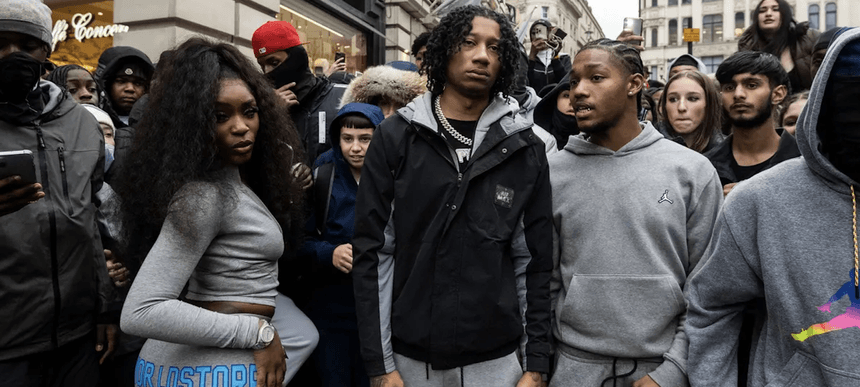
Met police accused of using "Form 696 by stealth" to target Black music events
The UK’s Musicians’ Union and Black Lives In Music have contacted Sadiq Kahn to express concerns that the London Met are pressuring venues to cancel music shows based on the genre or ethnicity of the artist.
The criticism has brought up discussions about Form 696, a risk assessment document previously used by the capital's police force which required venues and promoters to answer questions about the genre and ethnicity of the anticipated audience.
Met with widespread controversy, those questions were removed in 2009, though the form continued to be used until 2017 at which point the police introduced a “voluntary partnership approach” to identify any risks or concerns associated with specific events instead.
However, in a new Guardian feature about the Met Police targeting Black music, one London club operator said that the updated voluntary approach was “696 by another name”.
In the same article, an artist manager and promoter is also quoted as saying: “You’re still required to fill in the form, they’ve just taken 696 off the top of it. They’ve taken away the ethnicity question, because that’s the thing they were really getting hammered for. But they’re doing it by stealth now: they know that these are black shows”.
Journalist Will Pritchard brings attention to London shows from the likes of Digga D and Fumez The Engineer that were allegedly cancelled after the intervention of the police. On his cancelled show, Fumez told the newspaper: “All I know is I was booked to perform, I was putting on a show, and I [was] told 20 minutes before that it [was] cancelled. And they haven’t given me a reason”.
Now, a new statement from the MU and Black Lives In Music confirmed they had contacted Kahn about these reports: “In the past the MU have had constructive conversations about the use of Form 696 and were pleased to see the Met engage in a dialogue that ended the use of the form”.
“It’s therefore deeply concerning that claims of racial profiling of musicians have once again surfaced, and are being used to pressure venues into cancelling shows by predominantly black artists and artists who perform music of black origin”.
“Black artists still face enormous challenges, including racism and discrimination, whilst trying to pursue a career in the music industry”, the statement continued.
“Research from BLiM revealed that black music creators have experienced direct/indirect racism in the music industry, and more – 71% – have experienced racial microaggressions. 86% of all black music creators agree that there are barriers to progression. This number rises to 89% for black women and 91% for black creators who are disabled”.
“The music industry is working together to tackle these issues”, it went on, “and the recent reports about racial profiling are in direct opposition to the work that the music industry is engaged in. The MU and BLiM condemn all forms of racism, including the reductive act of racially profiling musicians and stereotyping musicians and audiences on the basis of genre”.
“Whilst we fully appreciate the Met’s role in ensuring the safety of the public”, it then stated, “the ‘voluntary partnership approach’ that was implemented to replace Form 696 is having a disproportionate and detrimental impact on the careers of black musicians and the music venues that programme these artists”.
“The MU and BLiM have asked that the current approach be revised and have requested dialogue with the mayor of London and the Met Police to a discuss an alternative approach that is fair, transparent, free from bias and does not disproportionally impact black musicians”.
Read next: Why criminalising drill music highlights failings at the heart of the government













